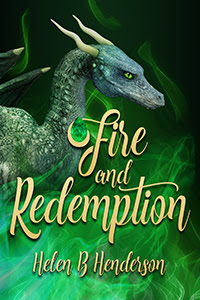
- Keep the names unique. Don't have characters named Jay, Jake, Jacob, and James in the same work. Too similar names can make it too hard to keep the characters straight and confuse them to the point where they are thrown out of the story.
- Track names. Although a pen and paper works, a digital spreadsheet makes sorting names easier. Seeing the characters in alphabetical order helps prevent repetition.
- A two-part character database based on the spreadsheets forms the basis of my tracking system. Part one is the spreadsheet with a complete list of the characters with a few important pieces of information such as physical description and a brief personal history. The second part features only the mains characters and goes into detail about the main characters and their traits.
- Keep a pad close at hand to capture names that catch your interest. If a name from television credits seems appropriate for a current or future project, make a note of it.
- Your character’s name can hint at their personality. One of the ways I do it is to take one of the character's traits, then convert it into the language the world is based upon.
- Careful when choosing a name. You don’t want to give a character a name that sets up the wrong expectation in your readers. Or if you do, then it needs to be clarified in the beginning of the novel. No serial killers called Fluffy, please.
- An exception to the no similar names rule is when a names is used to indicate a family relationship. In the Windmaster Novels, Lord Dal's mother is Eilidh. named after her grandmother. When the grandmother is referenced, it is as MarEilidh. The names are similar enough to accomplish the desired effect, yet different enough that the readers wouldn't get confused.
- Two of my favorite resources for creating the names for a character are a English-to-foreign language dictionary and a baby name book. Sometimes the book is supplemented by an online list of popular baby names.
- An online random name generator is another valuable resource.
- When using a name generator, be careful to select names that not only work with your setting, but can be pronounced by humans without stumbling over their tongues.You want your reader to enjoy the story, not focus on the pronunciation.
- Don't make all the character names long, multi-syllable. It can exhaust the readers.
- If you've found a name but it doesn't quite work, reverse a couple of letters to create a new sounding name.
- A final consideration is whether or not the name has been widely used or is a contemporary popular character. Googling the name can save you embarrassment or possibly even a lawsuit.
~till next time, Helen


















Good tips. I especially like the one about not using similar names. That can become confusing to the reader.
ReplyDeleteThanks for the tips. I especially like #11.
ReplyDeleteLove these tips.. while I am still nowhere close to writing a book, I have definitely struggled with character names when trying to write short stories (for class assignments..) #12 is so creative and sure to be fun!
ReplyDeleteI’ve named a few babies, mine and others. I love names and to come across good ones in books. Eliding is a good one. Http:looseleafnotes.com
ReplyDelete